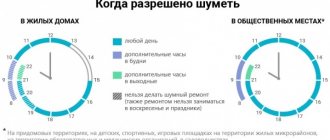Apartment takeover
With the advent of the state register of real estate rights, outright raiding in the housing sector has become rare. If the premises are occupied by unknown persons, it is enough to call the police. Law enforcement officers will help you enter the apartment and ensure that intruders are expelled from it. The actions of the invaders will fall under Art. 139 of the Criminal Code of the Russian Federation.
The punishment for the crime depends on the qualifications. If criminals seize real estate in the absence of a citizen living there, they face a fine of up to 40,000 rubles, confiscation of earnings for 3 months, compulsory work of no more than 360 hours, correctional labor for 1 year or three months of arrest. If a crime is committed using violence, threats, or entry into a home by a group of people, the sanctions will be much tougher.
The injured owner will only need to write a statement to the police. Law enforcement will take over the investigation. As part of the criminal process, it will be possible to file a civil claim for compensation for damage caused, including moral damage (Article 44 of the Code of Criminal Procedure of the Russian Federation).
Housing law:
Details
Improving living conditions
Legal advice Defense in court
Assistance from experienced housing lawyers in cases of improving housing conditions, obtaining subsidies, resolving disputes regarding obtaining subsidies
Housing lawyer
Disputes with the management company, courts for the right of residence, ownership, disposal of housing, disputes with the administration
Bay apartments
Disputes regarding flooding of an apartment and compensation for damage.
Housing disputes
Housing disputes of any complexity. Experienced Lawyers and Advocates
Disputes between owners
Such conflicts are considered the most complex from a legal point of view. An apartment can belong to several persons at the same time . Russian legislation provides for two forms at once (Article 244 of the Civil Code of the Russian Federation): general joint and shared.
In both cases, the owners can dispose and use the property. They must do this by mutual consent. If it is not possible to reach an agreement on the rules of living in the apartment, the issue is submitted to the court for consideration. At the same time, the servants of Themis do not always satisfy claims for resettlement. Compensation is often considered as an alternative.
A monthly payment for the inability to actually use the premises is prescribed in the following cases:
- the area and layout do not allow dividing the apartment into parts;
- the plaintiff's share is extremely small;
- cohabitation of conflicting parties infringes on the interests of third parties (for example, children).
The list of grounds that courts use when awarding compensation remains open. An example of the approach is the determination of the Supreme Court of the Khanty-Mansiysk District in case No. 33-649/2015.
Arbitrage practice
The variety of life situations obliges the courts to study the conflict from different points of view. But practices agree on one thing: it’s easier to evict tenants under a lease agreement, more difficult to evict owners.
Example:
Simonov owned a room in a communal apartment. Neighbors began to notice that the housing was managed by a third party, probably a relative of Simonov, and without a lease agreement. The new tenant began to create unsanitary conditions, drag all kinds of rubbish from the street and not clean up after himself in common areas. The neighbors' comments passed by, the relative felt like the owner, snapped, swore and threatened with physical violence. It got to the point that the tenant could not control his emotions in fits of anger, and the neighbors began to fear for their lives - small children lived in the apartment. Complaints to the owner led nowhere. I had to call the local police officer and draw up an act of illegal residence. Simonov had to evict an aggressive relative.
Example:
The owner of the room in Onufriev's communal apartment filed a complaint with the municipality. As follows from the woman’s statement, she was tired of Popov’s alcoholic feasts, as well as his rent arrears in the amount of 14 thousand rubles. The municipal body accepted the complaint, after which it conducted an investigation into the fact of the appeal: Onufrieva actually lived in a communal apartment, had title documents (a privatization agreement and an extract from the Unified State Register of Real Estate), Popov lived next door - on the basis of a social tenancy agreement. The noisy neighbor did not work anywhere, had problems with the law and did not pay utilities for 5 months. A representative of the municipal association drew up a violation report, warned the tenant and ordered him to repay the debt within the next month. There was no reaction, the amount of debt only grew - I had to go to court for the forced resettlement of Popov. The eviction claim was supported by Onufrieva’s testimony, an extract from her personal account indicating a 6-month debt, and a copy of the notice to the tenant. The eviction request was granted - Popov was ordered to move out of the room and find new housing.
Vindication
Article 301 of the Civil Code of the Russian Federation gives the owner the right to reclaim property illegally held by third parties. The procedure for implementing this mechanism in practice was explained by the Supreme Court and the Supreme Arbitration Court of the Russian Federation in joint resolution No. 10/22 of April 29, 2010. However, the issue cannot be called resolved.
Thus, formally, owners have the right to reclaim real estate even from a bona fide purchaser. However, the wording of Art. 302 of the Civil Code of the Russian Federation significantly complicates the process of proof. It is impossible to lose or steal a permanent structure or land plot. The only basis for vindication is disposal against one's will. The need to prove this fact prevents the use of the mechanism in the fight against abuses of citizens or tenants registered in the apartment.
Reference: A bona fide purchaser receives an item from a person who does not have the right to alienate. Moreover, such a participant does not know about the illegality of the operation. An example is the sale of apartments using forged documents.
If the premises are reclaimed from a bona fide purchaser, the owner will have to compensate the cost of inseparable improvements. The basis will be Art. 303 Civil Code of the Russian Federation.
In conclusion, we note that Russians have one more legal tool at their disposal. The legal owner has the right to apply to the court with a request to establish a special ban. The basis for the negatory claim is Art. 304 of the Civil Code of the Russian Federation. The outcome of the proceedings is a binding order. The defendant must refuse to take any action. Failure to comply with the ban may result in fines.
Entering residential and office premises.
The Constitution of the Russian Federation enshrines the right to inviolability of home.
Article 15 of the Federal Law “On Police” grants the police the right “to allow police officers to enter residential premises, other premises and land plots belonging to citizens, premises, land plots and territories occupied by organizations (with the exception of premises, land plots and territories of diplomatic missions and consular offices of foreign states, representative offices of international organizations) in the following cases:
1) to save the lives of citizens and (or) their property, ensure the safety of citizens or public safety during mass riots and emergency situations;
2) to detain persons suspected of committing a crime;
3) to suppress a crime;
4) to establish the circumstances of the accident.
When entering residential premises, other premises and land plots belonging to citizens, premises, land plots and territories occupied by organizations, a police officer has the right, if necessary, to break into (destroy) locking devices, elements and structures that prevent entry into the specified premises and on the specified land plots and territories, and inspection of the objects and vehicles located there.
A police officer entering (penetrating) a residential premises is obliged to:
1) before entering a residential premises, notify the citizens there about the reasons for entry, except in cases where delay creates an immediate threat to the life and health of citizens and police officers or may entail other grave consequences;
2) when entering a residential premises, against the will of the citizens there, use safe methods and means, respect the honor, dignity, life and health of citizens, and prevent unnecessary damage to their property;
3) not to disclose facts of the private life of citizens living there that became known to him in connection with entry (penetration) into a residential premises;
4) inform your immediate superior and submit a report within 24 hours about the fact of entry (penetration) into the residential premises.
7. Use of vehicles and communications for business purposes.
In accordance with clause 37, part 1, article 13 of the Federal Law “On Police,” police officers have the right “to use, in urgent cases, vehicles belonging to state and municipal bodies, public associations and organizations (with the exception of vehicles belonging to diplomatic missions and consular offices of foreign states, representative offices of international organizations), and in exceptional cases - vehicles belonging to citizens to suppress crimes, pursue persons who have committed crimes or are suspected of committing them, to deliver citizens in need of urgent medical care to medical organizations assistance, for towing damaged vehicles from the scene of a traffic accident, for travel to the scene of a crime, administrative offense, to the scene of the incident, removing, if necessary, drivers from driving these vehicles, with compensation in the manner established by federal law at the request of vehicle owners expenses incurred by them or material damage caused to them.”
In accordance with clause 36, part 1, article 13 of the Federal Law “On the Police,” police officers have the right to “freely use for official purposes communication means belonging to state enterprises, institutions and organizations, and in urgent cases, communication means owned by non-state enterprises, institutions and organizations, as well as public associations and citizens.”
The second subgroup of administrative prevention measures includes measures that are applied in connection with the commission of unlawful acts by a specific person, and are aimed at preventing or eliminating the possibility of committing similar offenses in the future; they have a clearly defined preventive focus. They are applied to a circle of persons specified by law after they have committed illegal acts in order to prevent them from committing new offenses, as well as to ensure the safety of internal affairs officers and others.
Such administrative and preventive measures are: 1. Administrative supervision of persons released from places of imprisonment ,
which is established in accordance with the Federal Law “On Police” Art. 12 part 26 and Federal Law No. 64-FZ “On administrative supervision of persons released from prison” dated April 6, 2011 and is aimed at preventing relapse of crimes by this category of persons.
2. Suspension of a license or cancellation of a license to engage in private detective and security activities is carried out by the internal affairs bodies that license this type of activity (Article 6, 12 of the Law of the Russian Federation of March 11, 1992 No. 2487-1 “On private detective and security activities in the Russian Federation"), in cases and in the manner established by Art. 13 of the Federal Law of August 8, 2001 No. 128-FZ “On licensing of certain types of activities.”
The internal affairs body that issued a license to engage in private detective and security activities (licensing authority) has the right to suspend the license in the event of repeated violations or gross violation by the licensee of licensing requirements and conditions.
3, Cancellation of issued permits for storage or storage and carrying of civilian and service weapons,
transportation, import into the territory of the Russian Federation and export from the Russian Federation of the specified weapons and ammunition for them, as well as permits for the storage and use of certain types and models of military hand-held small arms received for temporary use from the internal affairs bodies, permits for storage and transportation by road transport of explosive materials for industrial use is carried out in accordance with Art. 27 of the Federal Law of December 13, 1996 “On Weapons”.
Forcibly, licenses for the production of civilian and service weapons, trade in them, their acquisition, collecting or exhibiting, as well as permits for storage or storage and carrying of weapons are canceled by the authorities that issued these licenses or permits in the following cases:
- systematic (at least twice a year) violation or failure by legal entities or citizens to comply with the requirements provided for by the Federal Law “On Weapons” and other regulatory legal acts of the Russian Federation regulating the circulation of weapons;
— the occurrence of circumstances provided for by the Federal Law “On Weapons” that preclude the possibility of obtaining licenses or permits;
— constructive modification by the owner of a civilian or service weapon and its cartridges, which entailed a change in the ballistic and other technical characteristics of the weapon and its cartridges.
In case of cancellation of licenses or permits, re-applying for them is possible for legal entities after three years from the date of their cancellation, and for citizens - after five years from the date of their cancellation.






